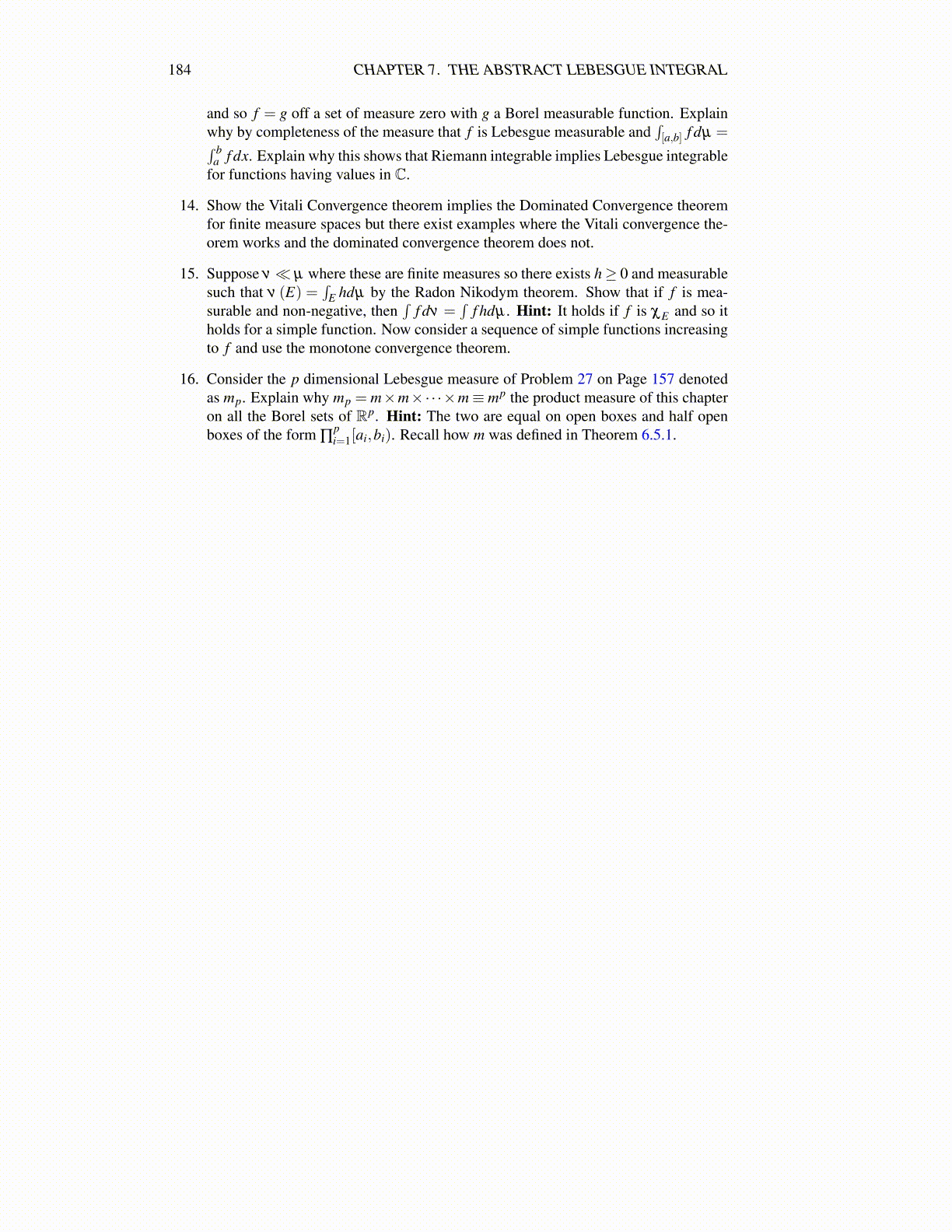
184 CHAPTER 7. THE ABSTRACT LEBESGUE INTEGRAL
and so f = g off a set of measure zero with g a Borel measurable function. Explainwhy by completeness of the measure that f is Lebesgue measurable and
∫[a,b] f dµ =∫ b
a f dx. Explain why this shows that Riemann integrable implies Lebesgue integrablefor functions having values in C.
14. Show the Vitali Convergence theorem implies the Dominated Convergence theoremfor finite measure spaces but there exist examples where the Vitali convergence the-orem works and the dominated convergence theorem does not.
15. Suppose ν≪ µ where these are finite measures so there exists h≥ 0 and measurablesuch that ν (E) =
∫E hdµ by the Radon Nikodym theorem. Show that if f is mea-
surable and non-negative, then∫
f dν =∫
f hdµ . Hint: It holds if f is χE and so itholds for a simple function. Now consider a sequence of simple functions increasingto f and use the monotone convergence theorem.
16. Consider the p dimensional Lebesgue measure of Problem 27 on Page 157 denotedas mp. Explain why mp = m×m×·· ·×m≡ mp the product measure of this chapteron all the Borel sets of Rp. Hint: The two are equal on open boxes and half openboxes of the form ∏
pi=1[ai,bi). Recall how m was defined in Theorem 6.5.1.